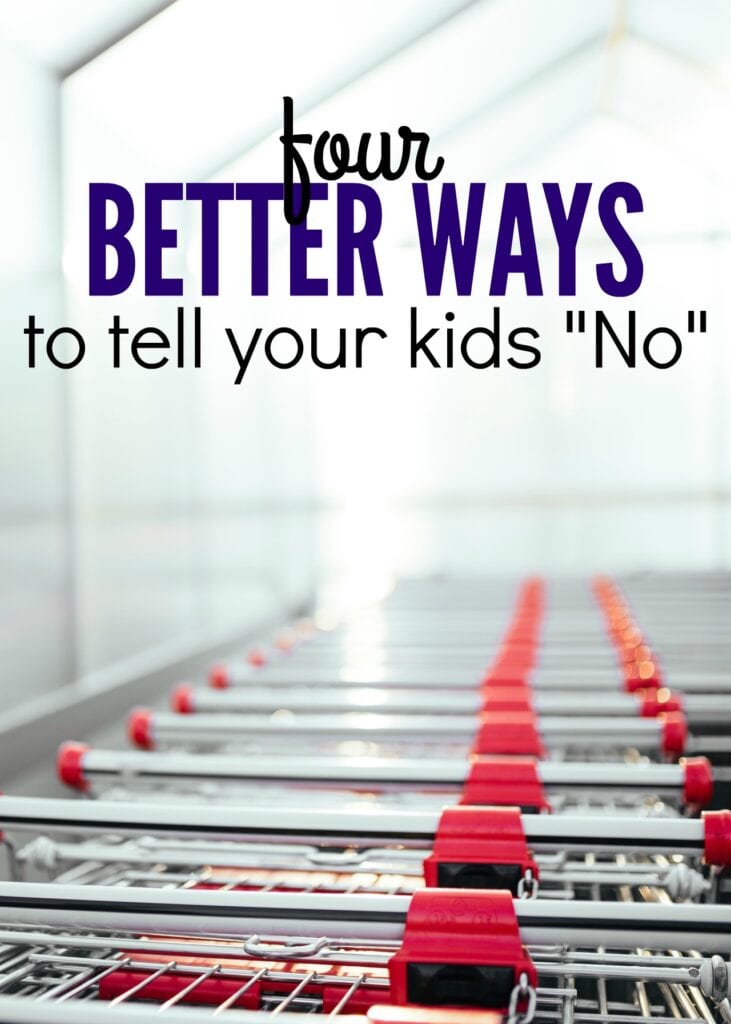 Kids always seem to want more. As parents, we like to give our children the best, but society and the media often train them to become faithful consumers from day one.
Kids always seem to want more. As parents, we like to give our children the best, but society and the media often train them to become faithful consumers from day one.
From movies and fun foods, to games, toys and electronics, some kids seem to want it all. While you can attempt to shield your child from some advertising by avoiding television commercials, once they are school age and become influenced by their peers, there will be little you can do to shield them from consumerism. Yet and still, you must say no when appropriate.
Why it’s So Important to Say No
If you have a young child you are inherently shaping their lifestyle and their habits and expectations. They say most grownups can trace their characteristics back to their childhood and how they grew up which is so true. If you cave in and say yes to everything all the time, imagine the message you are indirectly telling your child and how it could stick with them for life.
Sometimes it’s Hard to Say No. But It’s Worth It
My son literally asks for a new toy every week. About 95% of the time I say no and I believe he knows I’m going to say no but still tries. Sometimes I think to myself about how well behaved he’s been during the week and how he deserves a toy then I stop myself dead in my tracks. Kids should behave and listen whether they are getting a treat or not.
Toys and treats are special gifts in our family that mostly come into the house on Christmas, a birthday or another holiday. I provide for my child in every way possible to keep him happy, well-fed and clean. Plus, I have other intentions for my finances so I don’t feel bad about saving no in the long run.
If you are having issues with telling your children no or are just tired of using that word, here are four better ways to tell your children they can’t have something.
1. Give an Ultimatum
It’s okay to do nice things for your child and buy them things, especially if you budget for it. However, if your child is constantly asking you for something, you might want to give him or her an ultimatum so they can choose what they’d like best.
For example, if you’re in the store and they see something they like and ask for it, you can say something clever like: “We’re supposed to go to your friend’s birthday party next week and that’s what we have money set aside for. Would you rather get this instead and skip the party and not be able to play with your friends?”
This will put the ball back in their court and allow them to decide on what’s important. If they choose to skip the party or activity or whatever you had planned for them in exchange for the toy, so be it. They may make a different decision next time.
2. We Need to do ______ Instead of ______
When you say no to one thing, you are actually saying yes to something else. Therefore, instead of saying no to your child, let them know what your family is choosing to say yes to instead. You can say things like: “This week we need to get snacks and food for the house so we are going grocery shopping instead” or “We decided weeks ago to put money toward your field trip at school” or whatever the situation is.
This let’s your child know what is current a priority and why.

3. If you receive too Much of This, you Will Get or Receive ______
Most times, kids don’t know what’s best for them; Which is another reason why parents need to take control and say no when it’s necessary. Too much of anything is not good. But when it comes to candy, I try to explain to my child that if he eats too much of it, he could have problems with his teeth later down the line.
I explain to my son that the dentist is nothing to be scared of and how they help clean his teeth. However, the dentist’s office won’t be a fun place to visit if he eats too much sugar and doesn’t take care of his teeth.
You can use this method of reasoning with any object or service your child asks for that won’t be good for them in the long run.
4. You Don’t Need _______ to Make you Happy
If you get your child something and they keep asking for other things more and more over time, it’s important to understand that the object isn’t actually making them happy and explain that to them.
My son used to be obsessed with Teenage Mutant Ninja Turtles. What I couldn’t stand about the toys was that each one came with a ad showcasing all the new toys and gadgets kids could obtain to ‘add to their collection’. Every time he got a new toy, he looked at the paper and picked out more and more.
Over the course of three years, I slowly purchased the toys for Christmas, his birthday, and other special occasions. He now has a healthy collection and guess what? It’s on to the next fad: Star Wars.
Buying things for your children will only make them appear happy in the moment, not in the long run. What really makes kids happy is spending time their parents, creating things, and playing with their friends.
I can’t remember most of the things I received for Christmas or birthdays when I was younger, but I remember some of the birthday parties and the memories I made with my parents and my friends. Those are priceless and don’t even cost much anyway. I recently sat my son down and explained this logic to him and he seemed to start grasping it but only time will tell.
You should wait until your kids reach a certain age (around 5-years-old) before trying to reason with them and use some of these methods of logic. Yet and still, any of these techniques will help make the process of saying no and explaining the situation much smoother in your household.
How do you say no to your kids?



Good post! I have to agree I don’t hardly remember any of the toys my parents bought me as a kid. I do remember the vacations a hikes and time we spent together a lot more. Maybe promising a vacation in the future, and saying that we can’t buy this toy because we’re saving for our vacation this summer would be an easier way of saying no. Vacations can be spending the night in a hotel an hour away. The kid won’t know a difference, but they’ll love the swimming pool.
That’s a great idea. I didn’t vacation much with my family much when I was growing up, but the few trips we did take together were definitely more memorable and enjoyable.
Perhaps another way to tell the kids is by giving comparisons.
Something like, “Look at Joe, he bought a new car but now he’s struggling on hes debt.” Of course you have to find a credible example.
This works really good as this is how my mom teaches me. Now I am frugal 🙂
That’s an interesting tactic. I learned quite a bit of what I shouldn’t do by observing people and their actions as I got older so I see how it might work on a child but then again you don’t want them to compare themselves to others constantly.